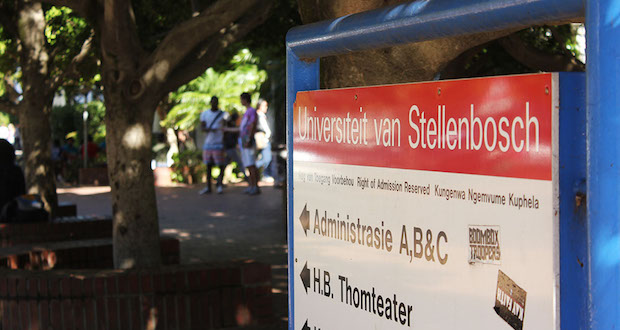On November 10, the Commission of Inquiry into Allegations of Racism at Stellenbosch University Report (Khampepe report) was publicly released. The 184 page report chaired by Emeritus Justice Sisi Khampepe was commissioned to look into allegations of racism at Stellenbosch University.
The main findings of the commission was that the university’s transformation policies have not translated into the lived experiences of students and staff. The report found that the university had made “impressive theoretical strides towards transformation” but Black students and staff members still feel unwelcome and excluded at the university.
What were the alleged racist incidents?
In May 2022, there were two incidents of alleged racism at the university. The first was a verbal altercation between two final year law students at a Law Faculty Dance. It was alleged that a white student made racist remarks towards an Indian student during the altercation. The second incident involved a white first year student, Theuns du Toit who entered the room of a Black first year student, Babalo Ndwayana, without his permission and then urinated on Ndwayana’s possessions. Du Toit was subsequently expelled for misconduct, which included acting in a racist manner.
RELATED:
The DA’s Deluded or Demagogue Approach To Stellenbosch University
Following the two incidents as well as the university’s history of previous racist incidents and difficulties with transformation, the rector and vice-chancellor appointed the commission in June 2022. The report was completed in late October and handed to the university.
What did the report/commission aim to achieve?
The commission was mandated to undertake an investigation into transformation at the university. This included looking at the efficacy of the university’s transformation apparatus, the broader culture at the university and the consequent experiences of students and staff members. Therefore the purpose of the commission was to compile the findings to assist the university management with improving the “university’s culture of diversity, equity and inclusion with reference to racism”. Members of the university community were allowed to make written and confidential submissions. Oral evidence for the commission was conducted through closed hearings.
READ MORE:
ConCourt Prevents Attempt To Change Stellenbosch Uni Back To Afrikaans
Reasons for findings
The commission found that black students and staff still feel excluded at the university. One of the factors for this the reports said is because of the history of the university.
“The history of the University and the symbolic meaning that it has acquired for certain members of the White, Afrikaans community poses challenges to transformation at the University.” The report said many – within and outside the university – believe the university is “culturally significant to Afrikaners and that the status quo should accordingly be preserved”.
Furthermore, the report said the university’s transformation plan “has taken place in a piecemeal and uncoordinated fashion”. It also found that the burden of transformation is “borne by a select group of people within the University”.
RELATED:
Open Stellenbosch Protest: “It’s Like The Remnants Of Apartheid Live Here”
Language has long been a very contentious issue at Stellenbosch University. In 2015, there were mass protests at the university around “Open Stellenbosch” calling for transformation. The commission found there is a perception that Afrikaans remains the language of choice in unofficial and social settings. This is despite the fact that the university has a multilingual policy. This perception has meant that many black and non-Afrikaans speaking members of the university have been excluded.
With regards to the two incidents that prompted the commission, the commission declined to make findings or recommendations. This is because the law dance incident was before an internal hearing. With the Huis Marais residence incident, du Toit appealed this finding. As the matter was not yet finalised, the commission declined to make any findings on the incident.
Recommendations
Several recommendations were made by the commission. Here are some of them summarised.
- The Commission found that the university should implement major reform interventions in Huis Marais.
- Improving the Equality Unit’s reputation and efficacy as an instrumental role player in resolving disputes relating to unfair discrimination.
- Compulsory training on matters relating to discrimination and transformation for all members
- The university must take deliberate steps to ensure that all student leaders have access to support and guidance, especially during times of crisis.
- The university should consider reviewing and revising the language policy to remove the possibility of language exclusion through the preference of Afrikaans.
- Implementation of a compulsory, Shared Humanities module, in order to facilitate this critical process of introspection and growth.
The university’s rector and vice-chancellor Prof Wim de Villiers said: “The Report of the Khampepe Commission, with its findings and recommendations, is a tipping point for SU. In appointing the commission and requesting the inquiry, SU made itself vulnerable and exposed itself to possible criticism. We are in a process of studying the report and we fully engage with the findings and recommendations. This is a top priority for the University.”
A press conference was held by the university on November 9.
The deputy vice-chancellor of learning & teaching, Professor Deresh Ramjugernath said: “we would not take any funds that would go against the values of our institution…” This was due to comments made by the Democratic Alliance’s MP Leon Schreiber. The DA had denounced the report. Schreiber said he would lean on Stellenbosch University’s biggest donor — the Het Jan Marais Nationale Fonds — to “consider defunding Stellenbosch University unless the university management explicitly rejects the recommendations of the Khampepe report” on language issues.
This story will be updated with the comments from the press conference.









